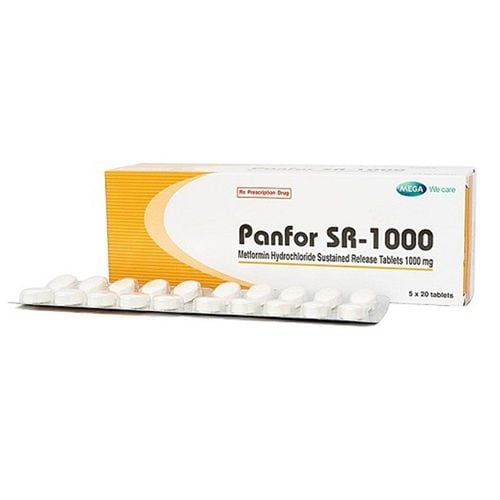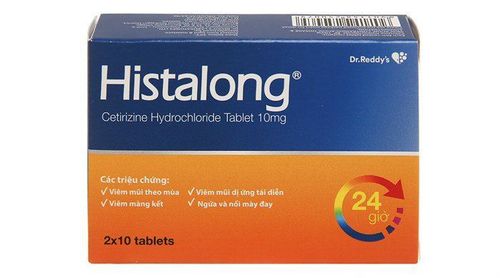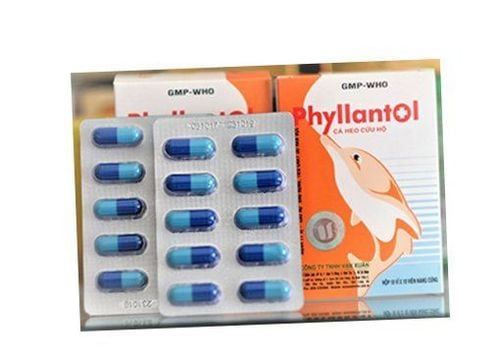This is an automatically translated article.
Avigly is used to treat chronic hepatitis and improve liver dysfunction. In addition, the drug can also be used to support the treatment of dermatitis, eczema, urticaria...
1. What is Avigly?
Avigly is available as an injectable solution. Each ampoule of Avigly contains the following ingredients:
Ingredients L-cysteine hydrochloride: Content 20 mg. Ingredients Glycyrrhizin (Monoammonium Glycyrrhizinat): 40 mg content. Glycin ingredients: 400mg content. Other excipients include: Sodium chloride (100mg), anhydrous sodium sulfite (16mg), water for injection just enough.
2. Indications and contraindications to the use of Avigly
2.1 Indications Indications for use of Avigly in the following cases:
Restore abnormal liver function due to chronic liver dysfunction. Treatment of Eczema, Urticaria, Dermatitis, Drug Rash, Stomatitis, Toxic Rash, Strophulus, Red Herpes. 2.2 Contraindications Avigly is contraindicated in the following cases:
Patients with a history of allergy to Avigly's ingredients. Patients with hyperaldosteronism, myopathy, hypokalemia. Pregnant women, nursing mothers. Muscle pain. Notes and precautions:
To prevent shock, the doctor needs to ask carefully about the patient's history. The patient remained silent and carefully monitored after taking Avigly. Do not repeat Avigly if the patient is already taking another Glycyrrhizin preparation. With the elderly.
3. Dosage and how to use Avigly
3.1 Dosage of Avigly The usual dose: inject once a day with a dose of 5-20 ml. Treatment of hepatitis : Injection or intravenous infusion of 40-60 ml, once a day. The maximum dose should not exceed 100 ml/day. 3.2 How to use Avigly Avigly is used by injection or intravenous infusion. During the use of Avigly, there must be close monitoring of medical staff and treating doctors to promptly handle possible situations. When injecting Avigly intravenously, pay attention to slow injection. Take Avigly according to the recommended dosage.
4. Side effects of the drug Avigly
Some unwanted effects when using Avigly include:
Shock, anaphylaxis with manifestations such as: hypotension, shortness of breath, heart failure ... or hypersensitivity. Loss of strength, decreased muscle tone due to hypokalemia may occur when taking Avigly. Some rare side effects of Avigly: Hypokalemia, increased blood pressure, headache, fever, edema, fatigue. You need to inform the treating doctor if you experience any unwanted effects when using Avigly for timely handling measures.
5. Drug interactions of Avigly
Interactions to watch out for when taking Avigly drugs:
Loop diuretics, Thiazide diuretics: If Avigly is used concurrently with these drugs, it will increase potassium excretion and lead to a decrease in serum potassium. . Other Glycyrrhizin-containing preparations: If Avigly is used concurrently, pseudo-aldosteronism and rhabdomyolysis may occur.
7. Notes and cautions when using Avigly
Read the instructions for use carefully before using Avigly. Any residual Avigly injection should be discarded. It is necessary to check the integrity of the packaging of Avigly and the clarity of the preparation before injection. If the solution becomes cloudy or appears abnormal particles should be discarded immediately. When taking Avigly, you should rest properly to contribute to the improvement of your condition. Only use Avigly when it is still within its expiry date, if it has expired, it should be discarded immediately. Pregnant women and nursing mothers should not take Avigly because safety and efficacy have not been established. Above is all information about the drug Avigly, you need to carefully read the instructions for use, consult your doctor / pharmacist before use. Absolutely do not arbitrarily buy drugs to treat at home because there may be unwanted side effects.
Please dial HOTLINE for more information or register for an appointment HERE. Download MyVinmec app to make appointments faster and to manage your bookings easily.













